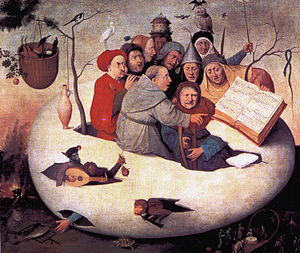 He was twenty-two, a Queens kids who grew up in Ozone Park and became a plumber. Twenty years later, he's the NYC Commissioner for People with Disabilities. He lives with his wife and two
He was twenty-two, a Queens kids who grew up in Ozone Park and became a plumber. Twenty years later, he's the NYC Commissioner for People with Disabilities. He lives with his wife and two daughters on the Upper West Side. On the wall of his office, there's a picture of him, looking ridiculously young, in the boxy gear of a hockey player, shaking hands with President Clinton. He toured Europe on the United States Sledge Hockey Team and competed in the 1998 Paralympics in Japan.
I met Victor in 2012 when Extreme Kids & Crew needed a space in which to create an indoor play environment for kids with disabilities. By this time, I had a fair amount of practice knocking on the doors of officialdom, and I knew what to expect: I would be greeted warmly, told that I was a great person, then kindly ushered away, with vague promises for future meetings. Perhaps some forms that I could fill out would be slipped into my hands. But when I told Victor that the City should give us space, he swiveled his wheelchair to his computer, and immediately began calling and emailing people. I watched in astonishment. A few months after this meeting, Parks allowed us to convert a little brick house in a Clinton Hill playground into CAP House: the cozy home of our bubble tube, ball pit, and squeeze machine, and the site of many a happy playgroup.
 Victor can also jump up curbs on his wheelchair. He played sports when he was able-bodied, and sports integrated him back into his life when he became disabled. To help kids with physical disabilities enjoy the confidence and sense of belonging that sports can offer, he and Bill Greenberg founded a kids sled hockey team a couple of years ago--the WSF New York Sled Rangers. The team has grown quickly, and now has thirty children. The Sled Rangers' traveling team just came back from competing in Minneapolis. Victor's face lights up when he talks about the trip. Some of the kids are from lower-income neighborhoods in the Bronx. They'd rarely left their borough. "Now they're on an airplane! Leaving the city! Their self esteem is through the roof."
Victor can also jump up curbs on his wheelchair. He played sports when he was able-bodied, and sports integrated him back into his life when he became disabled. To help kids with physical disabilities enjoy the confidence and sense of belonging that sports can offer, he and Bill Greenberg founded a kids sled hockey team a couple of years ago--the WSF New York Sled Rangers. The team has grown quickly, and now has thirty children. The Sled Rangers' traveling team just came back from competing in Minneapolis. Victor's face lights up when he talks about the trip. Some of the kids are from lower-income neighborhoods in the Bronx. They'd rarely left their borough. "Now they're on an airplane! Leaving the city! Their self esteem is through the roof."Definition of Disability:
Someone who needs a little help.
What drives you nuts about disability?
People. People with disabilities let able-bodied people into their world. You get a temporary disability, you get all the perks--parking, speedy wheelchair through airport security. Able-bodied people take advantage of these conveniences. But they don't let people with permanent disabilities into their world. There's an enormous lack of access for people with disabilities, whether we're talking about buildings, transportation, or jobs.
Current Project:
Meeting with DeBlasio's new commissioners and pushing the disability agenda. A bunch of these new commissioners are into equality and they get it. The Department of Transportation just hired an ADA coordinator, which is great.
Recent Wonder:
We hired a new counsel with 27 years of experience with ADA, Kleo King. She's general counsel with a background in stadium design and housing. She's going to be talking to the general counsels of all the other agencies, changing the infrastructure, making NYC a better place for people with disabilities.
Here's the interview, conducted by Eliza Factor and Julia Rothwax.


